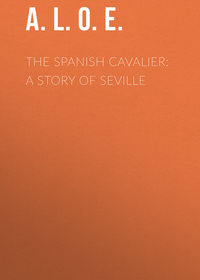Sadece Litres'te okuyun
Kitap dosya olarak indirilemez ancak uygulamamız üzerinden veya online olarak web sitemizden okunabilir.
Kitabı oku: «The Spanish Cavalier: A Story of Seville», sayfa 11
Bir şeyler ters gitti, lütfen daha sonra tekrar deneyin
Türler ve etiketler
Yaş sınırı:
12+Litres'teki yayın tarihi:
28 mayıs 2017Hacim:
220 s. 1 illüstrasyonTelif hakkı:
Public Domain